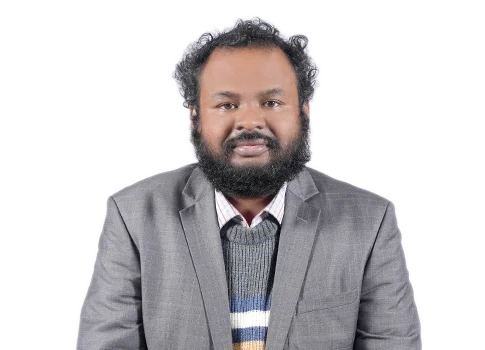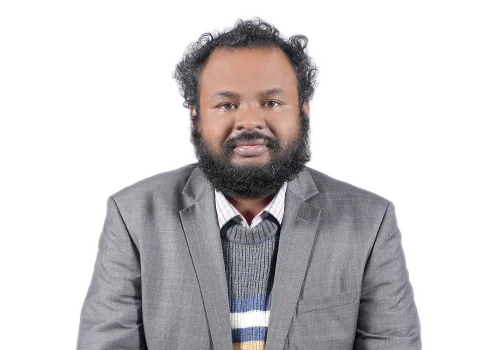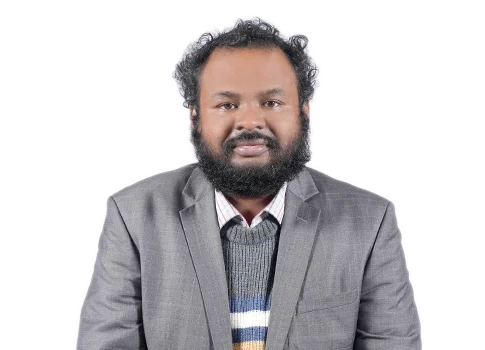
Suvankar Roy Chowdhury is a highly accomplished researcher specializing in experimental high physics. He has been working with the Compact Muon Solenoid experiment at CERN, Geneva, He obtained his PhD from Saha Institute of Nuclear Physics, followed by post-doctoral research in India and Italy. His research work has focussed on Higgs boson properties, electroweak precision measurements, and silicon tracking detectors. He has received the CMS Achievement Award in 2022 for his outstanding contributions to the CMS experiment.
Before joining UPES, he did six years of post-doctoral research at NISER, India, Scuola Normale Superiore di Pisa & INFN Pisa. He works with the CMS experiment at CERN, Geneva which one of the two multi-purpose detectors at the Large Hadron Collider.
Dr. Suvankar’s research interests include precision tests of the Standard Model of Particle physics, silicon detector R&D and software development for High Energy Physics.
Dr Suvankar believes in the core mission of educational institutes is to create and share knowledge while mentoring the next generation. He has been actively engaged in tutoring at workshops, schools, and collaborative meetings. During my PhD, he tutored computing courses for Post-MSc students. As a post-doctoral fellow, he has taught at several schools/workshops at RWTH Aachen, DESY(Hamburg) and CERN(Geneva). He has mentored several master’s and PhD students and guided technical students in their projects at CERN.
Dr. Suvankar is teaching physics laboratory courses for BTech students.
In 2019, Suvankar received research grant from Scuola Normale Superiore di Pisa, Italy to conduct research related to the CMS experiment. Subsequently, he won a Fellowship with INFN Pisa in 2021 for three years. During his PhD, he received funding from DAE for travel to CERN, Geneval for work related to CMS experiment.
Suvankar is actively working in the CMS collaboration, performing physics analysis with the data collected. He has made significant contributions to several important important physics results. He is also collaborating with theorists on prospects for future research in high energy physics.

